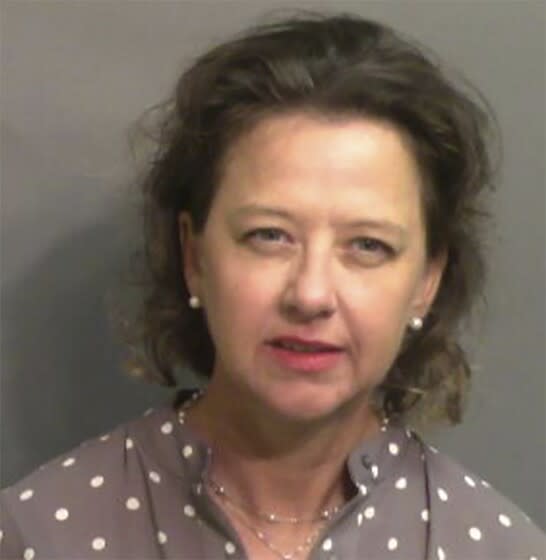Granderson: Who else has been terrorized and killed by police where Ahmaud Arbery was murdered?

Caroline Small was just 35 years old when she died.
Already struggling with mental health issues as well as drug and alcohol addiction, it is believed her divorce, which had just been finalized days earlier, contributed to her poor state of mind when a Glynn County officer approached her as she sat in her running car. Someone had called police believing Small was doing drugs.
This was June 18, 2010.
When the officer asked her to step out of the vehicle, Small drove off and, for four miles, led officers on a low-speed chase. A short time later, Small’s car was pinned between a utility pole, a ditch at the side of the road and a police car. The tires on her old Buick Century were all flat. She was unarmed and trapped. A state trooper can be heard on dashboard-camera video saying, “Let me get out there and get her out.”
“If she moves the car, I’m going to shoot her,” another officer responds.
Small inches forward. Shots are fired, hitting the mother of two in the head and face. The officers who fired the shots — Sgt. Robert C. Sasser and Officer Michael T. Simpson — can be heard in the police video bragging about their aim. A week later, Small dies.
Mike McDaniel, the Georgia Bureau of Investigation agent who oversaw the case, called the police shooting “the worst one I’ve ever investigated,” adding, “I don’t think it’s justified.” Still, the officers were not disciplined or charged.
Years later, the Atlanta Journal Constitution (where I was once employed) and WSB-TV News conducted an investigation and found records showing the steps the Glynn County Police Department took to tamper with the crime scene and created misleading evidence that was presented to the grand jury. The report also showed the local district attorney shared the state’s evidence with the two officers months before grand jury proceeding and even struck a deal with the officers involved.
That local district attorney was Jackie Johnson, the same Jackie Johnson that Greg McMichael called after he, his son Travis McMichael and William Bryan Jr. chased down and murdered Ahmaud Arbery.
Johnson was indicted and arrested in September for violating her oath and obstructing police in the Arbery case. Just as she declined to pursue charges in the death of Small, Johnson instructed officers not to arrest the McMichaels and Bryan. She has denied any wrongdoing.
I haven’t slept much since the three men were all found guilty on murder charges. Each night I’ve found myself staring at the ceiling repeating these two words: Who else?
If Greg McMichael, who had worked in law enforcement for decades — including time as an investigator in Johnson’s office — felt comfortable jumping in his truck and hunting down an innocent man in broad daylight, what else did he feel empowered to do without a badge? Especially with Johnson as an ally.
Who else did McMichael suspect of wrongdoing without evidence? Who else did he chase down? Stop?
Not only should the Department of Justice reopen the Small case, knowing what we know of Johnson, but it should also conduct a full audit of the cases she handled as district attorney for the last decade. The issues surrounding Johnson began even before she assumed office in 2010, with tentacles that reached all the way up to the governor’s office.
At the time of Small’s death there wasn’t a permanent district attorney for that jurisdiction. Johnson, who was a young prosecutor at the time, announced her plans to run for the office just three days after Small’s shooting. Glynn County Police Chief Matt Doering spoke to Johnson about comments made by the acting D.A., David Perry, who after watching the dash-cam video, said to the local newspaper: “Was there an immediate danger to the officers or the public for them to use the level of force they did? To me the answer was no.”
After talking with Johnson, Doering wrote a letter to then-Gov. Sonny Perdue recommending Johnson for the D.A.'s job. After Perdue appointed Johnson, she fired Perry and took over the Small case herself.
"There was no question in my mind that was cold-blooded murder on that girl that day," Glynn County Commissioner Bob Coleman said in 2017.
The following year, Sasser, one of the officers who killed Small, shot and killed his estranged wife and her boyfriend before turning the gun on himself.
I can’t help but feel that those two lives might have been saved had Johnson upheld the law and taken Sasser off the streets.
Fast-forward a decade and once again Johnson, who was running for reelection when Arbery was murdered, appears to have been looking out for herself as opposed to the people she swore an oath to protect. Only this time, she got caught. There’s a measure of satisfaction that comes with that. There is still the question of “Who else”?
This story originally appeared in Los Angeles Times.
